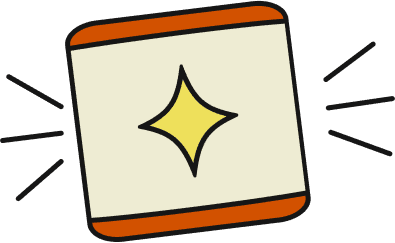In a time when pop-ups, influencer drops, and massive ad spends dominate the marketing landscape, one approach remains quietly powerful — and refreshingly human: workshops and classes.
For beauty, fashion, and art brands, hosting a small, well-executed class can drive sales, build community, and generate buzz — even with limited resources. Whether it’s a hands-on demo, a DIY tutorial, or a behind-the-scenes deep dive, workshops turn passive consumers into active participants.
Here’s how to launch your product through workshops and classes — plus inspiring case studies to show how top brands have done it successfully.
Why Workshops Work for Product Launches
Direct engagement → people interact with your product in context
Authentic storytelling → show the craft or mission behind what you sell
Built-in content → social-ready moments from live demos or attendee creations
Community building → ideal for nurturing loyal early adopters
Best of all? They’re scalable. You can host 5 people or 50. A table at a local studio, or a corner of a concept store. What matters most is the experience.
How to Do It on a Budget
1. Partner Up:
Collaborate with local studios, shops, or creators who already have space and a following.
2. Use What You Have:
Your product is the main event. Use it in demos, tutorials, or hands-on stations.
3. Keep It Small:
Limited seating = exclusivity. You don’t need a big guest list to make a big impact.
4. Capture the Moment:
Even a smartphone can document key visuals for social and future promotions.
10 Real-World Brand Case Studies
Gucci's Artisan Workshops
Gucci launched pop-up artisan classes inside Bloomingdale’s, letting customers watch (and sometimes try) the craftsmanship behind their leather goods. This deepened appreciation for the product while reinforcing Gucci’s luxury ethos.
Takeaway: Pull back the curtain. People love seeing how things are made.
MODIVO’s “Power Dressing” Sessions
Fashion platform MODIVO hosted classes with brands like Wrangler and Lee, teaching styling and wardrobe curation techniques. Not only did this position the brand as a fashion authority, it created a shoppable, interactive environment.
Takeaway: Teach people how to use your product better — they’ll want it more.
Mood Fabrics: How to Start a Fashion Brand
Mood Fabrics (yes, the one from Project Runway) held a one-day crash course on launching a fashion line, complete with pricing strategy and sourcing tips. This helped position Mood not just as a fabric store, but as a launchpad for creators.
Takeaway: Use your event to level up your customer — and they’ll stay loyal.
Backstage Makeup Pro’s Hands-On Training
Backstage offered in-person workshops for aspiring MUAs to test products and techniques. Attendees left not only more skilled, but more brand-attached.
Takeaway: Let customers experience your product in the wild.
LokaLeather’s Craft-Your-Own Workshop
LokaLeather hosted small leather-making workshops where people learned to make keychains or wallets using their products. The kicker? They could buy the kit to finish or recreate it at home.
Takeaway: If you teach with your product, sales feel like a natural next step.
Art From the Inside Out: Children’s Pop-Ups
This community art brand hosted pop-up classes for kids and families, using the time to both teach and soft-launch new products in their art line.
Takeaway: Don’t forget niche markets — classes for kids or parents are often under-tapped.
Eni Oken’s 3D Flower Card Class
Artist Eni Oken ran a pop-up class teaching how to make intricate pop-up flower cards. She used it to build her email list, test her course curriculum, and upsell online lessons.
Takeaway: Use IRL events to test digital products or memberships.
Penguin’s “Happy Reading” Hub
Penguin Classics hosted a book-focused pop-up with reading corners, panel talks, and community discussions. Not only did they sell books, they embedded themselves in culture.
Takeaway: Make your workshop more than a sales pitch. Make it a space.
Janssen Cosmetics’ Ingredient Education Sessions
Janssen hosted micro-classes explaining skincare ingredients and letting customers test their lines. Guests left smarter and more confident about what they bought.
Takeaway: Empower your customer with knowledge = trust + conversion.
Bellafricana’s Fashion Brand Planning Workshop
Together with BlueVelvet Consulting, Bellafricana offered strategic workshops to fashion entrepreneurs. It wasn’t about selling product — it was about empowering future buyers and allies.
Takeaway: Sometimes your product is knowledge. Use it to build bridges.
Final Thoughts
Workshops are more than events — they’re stories your customers participate in. When done right, they turn interest into interaction, and interaction into loyalty.
And if you’re using Localista, you can easily:
Build stunning sign-up pages
Send branded invites
Track attendance & follow-up
Even embed the event on your existing site
Product launch? Try it the hands-on way.
Because connection is the best conversion.






